Morocco
In Douar Azbane Lagrinate, a small village located 47 kilometres north of Marrakech, this farmer is growing alfalfa herbs.
Rachid Ait El Jadida owns six hectares of crops and looks after them just like his parents and grandparents did before him.
But over the last few years, his job has become more difficult because of a lack of rainfall.
"We've always only worked in agriculture and we'll always want to continue this work, we'll always want to stay here, but if the lack of rain continues, we'll have to leave. It will be very difficult for us to make this decision. We are really sad when we see our lands suffer from drought in addition to lack of water, but then there is no other option but to emigrate," says Ait El Jadida.
According to Ait El Jadida, it hasn't rained at all since the beginning of the year.
He and his fellow farmers are concerned about this situation, since agriculture is their only source of income.
Ait El Jadida is noticing a sharp colour contrast of his fields compared to previous years: what used to be a large and uniform crop of green plants is now a small green patch surrounded by dry soil and stones.
That's because there's only so much water to irrigate, and the farmer could only save a small part of his field.
To do so, the farmers in the village are using wells.
Ait El Jadida dug one nine years ago.
But even 130 metres down, water is not available in sufficient quantities.
So much so that the drip irrigation system didn't have a water flow strong enough to work -- so he had to remove the pipes.
Water and the plants growing here are not only important for residents but for their animals too.
Sheep don't have much to drink, nor graze.
The village also has traditional wells, but all of them are now completely dry -- it's why they're now covered by metal plates and rocks.
"This well is traditional, we used to use it for irrigation, but now it has become dry we had to dig other wells that work thanks to an electric pump. But despite that we did not find water in all the wells we dug. So many people left Douar Azbane Lagrinate because of the lack of water," says Ait El Jadida.
According to the Town Hall of Nzalet Laadem, more and more residents are leaving the village because of droughts -- but no statistics can confirm this statement.
"The phenomenon of rural migration is a direct consequence of the drought that afflicted the region, which has become a structural phenomenon due to the successive years of drought, and this is despite the tremendous efforts made by the state to stabilise the population through the provisions of drinking water, electricity and supportive agricultural programs, for example, insurance on agricultural crops in the drought period. Despite all this, the phenomenon of rural migration to the cities remains," says Abdelilah Mehdi, Head of services at the Town Hall of Nzalet Laadem.
The Groundswell report of the World Bank estimates that in 2050, 5.4% of the total Moroccan population -- about 1.9 million people -- will migrate within the country if no measures are taken to tackle climate change.
So what's happening in these villages is just the start of a trend predicted by researchers.
"As we know, agriculture is the main economic sector in the village, so without agriculture, conditions (required) for staying in the villages will be absent, and this is what pushes the residents of the villages to think about migration, whether internal or external. And certainly this migration has negative repercussions on the migrants, whether on the psychological or social level," says Rachid Salim, a sociologist.
And the situation is not on track to improve.
Morocco is attempting to mitigate the impact of climate change by building wastewater stations, water desalination plants and dams -- over 140 are present in the country to cope with water scarcity.
In Nzalet Laadem, a wastewater plant is helping with the irrigation effort at its limited scale.
"The objective of this station is to use treated wastewater for the purpose of irrigating the agricultural lands, but due to the poor water flow, the station cannot meet the needs of the farmers, especially during the period of drought years, the water flow is very weak," says Mbirqate Abdeljalil, head of the wastewater plant of Nzalet Laadem.
According to the ministry of transport, logistics and water, the volume of natural water resources in the country is currently estimated at about 22 billion cubic metres, equivalent to 620 cubic metres per person per year.
It's expected to drop below 560 cubic metres by 2030, about five times less than in 1960.
"The studies recently made by the Earth Summit speak of a profound shift in weather and climate in the Mediterranean region. Morocco is concerned with this transformation and we can live three or four years of drought. That is why it was agreed to present the innovative agriculture project within the framework of climate policies," says Mustapha Laissate, president of Green Carpet Association.
The most populated areas where agriculture and industry are developed face a greater risk because of the high consumption of water.
On 16 February 2022, Morocco's King allocated more than $1 billion to address the effects of the drought and water stress in the agricultural sector.
Thanks to this financial effort, farmers might not have to relocate, or it may just delay an unavoidable move.
The Intergovernmental Panel on Climate Change (IPCC) have been meeting since 14th February to assess climate change impacts, adaptation and vulnerability. It is due to report its findings on 28th February.
***AP***




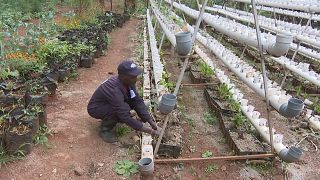
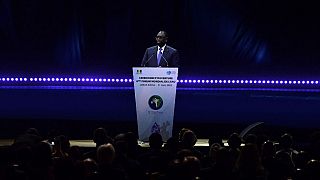
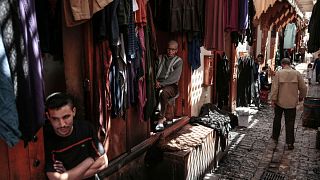
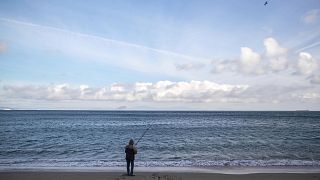
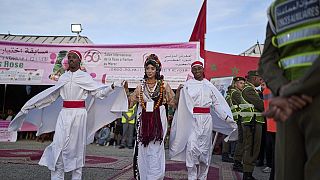



11:19
Cocoa is under pressure while East African economy is on the rise {Business Africa}
01:17
UNESCO inscribes 26 new sites on World Heritage list
01:07
Only 35% of sustainable development goals on track to meet target, UN says
02:30
Morocco’s oases struggle to survive amid growing desertification
01:26
Brazil elephant sanctuary welcomes its newest resident, rescued from a zoo in Argentina
01:45
Empowering youth in agriculture could boost global economy, FAO report says